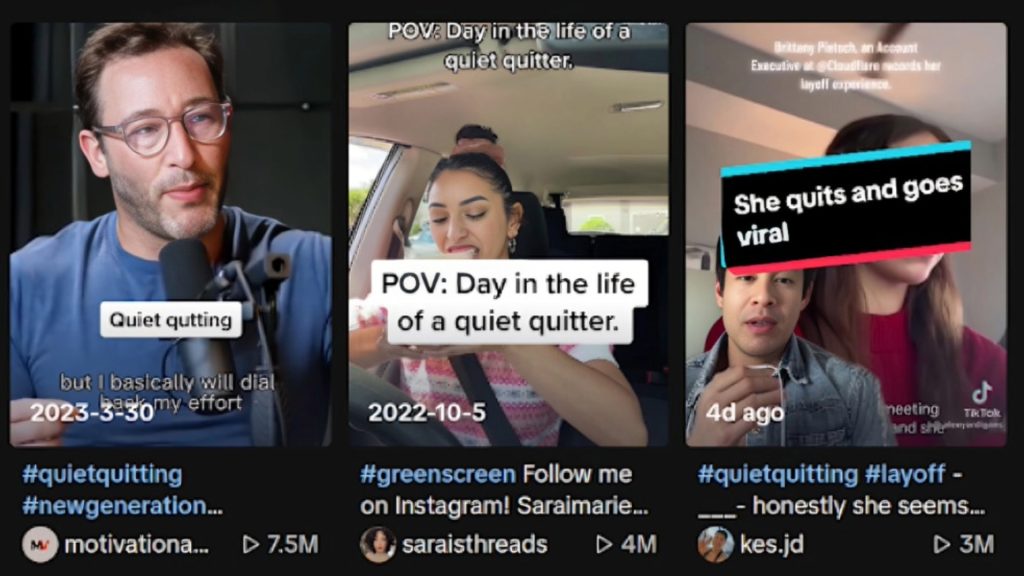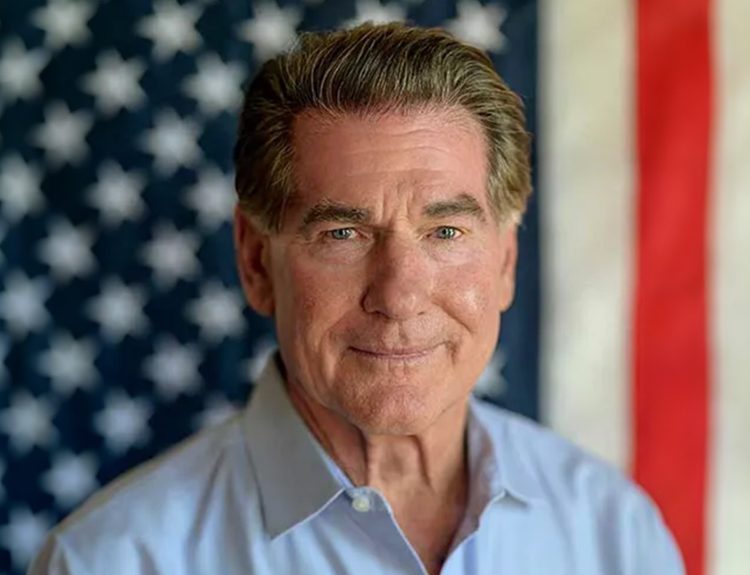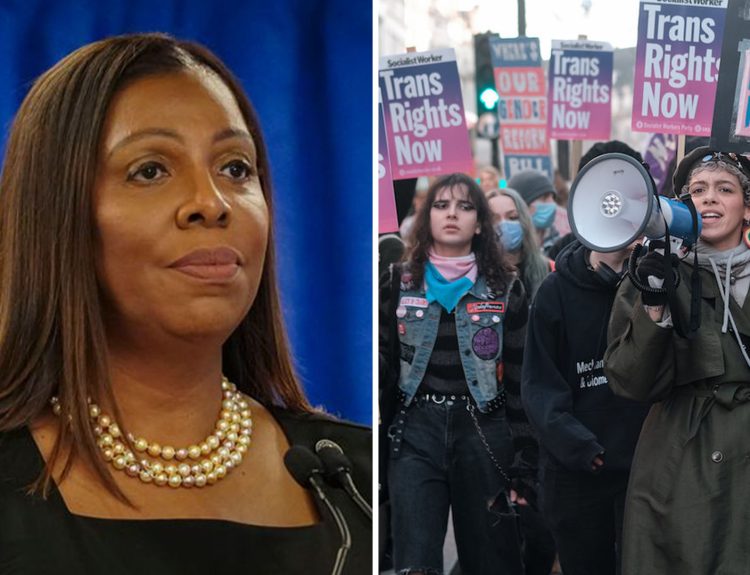Generational divides can be very apparent when it comes to political views and culture, and one such divide is becoming increasingly clear between Gen Z and the generations above it: work ethic. Gen Z are the newest generation to be coming into the workforce, and they’re starting to make waves, but not for the reasons they might want.
Gen Z Making Waves
Gen Z is the generation that has been making headlines for their attitudes and opinions regarding work, the minimum wage, the cost of housing, and work-life balance. Their thoughts are drastically different from the generations that have come before them, and it’s no surprise.

There’s a couple of theories out there as to why, and some possible logical reasons why they feel the way they do about these important life factors. It’s a fascinating sociological study, especially when taking into account older generations towards the newest slate of workers.
Boomers Don’t Understand Gen Z
The fact is, particularly Boomers and Gen X-er’s are confused by Gen Z, to put it mildly. Outright annoyed by them, putting it harshly. The newest generation of workers seems to have a very laid-back attitude towards work, work-life balance, and the overall concept of capitalism in America.

This has made waves in the workplace, across all industries. Even in the creative sector, where it would appear that the hippie, pro-art and life Gen Z would thrive, their attitudes towards hard work are starting to rankle those above them, and not in a way that makes them attractive employees.
Jodi Foster Weighs In
One example of this comes from Jodi Foster, a woman who has been acting in movies since the eighties. She’s best known for her roles in Silence of the Lambs and The Accused, and in her directing work, has started to notice a stark difference between Gen Z employees and those of older generations.

In an interview, she admitted that she found the youngest generation of workers “annoying” to work with, citing the fact that they don’t seem to have the same punctuality and work ethic as generations above theirs.
Is It True That Gen Z Doesn’t Want to Work?
The evidence that has often been cited in support of the idea that Gen Z has a “work ethic problem” doesn’t necessarily come down to the fact that they don’t want to work. This is the prevailing theory, but it doesn’t necessarily have evidence backing it.

Instead, the reigning sociological theory is that Gen Z has a very different attitude regarding work than previous generations, rather than a lack of desire to work. This is due to a couple of reasons, including but not limited to a jaded view of the capitalistic system.
Gen Z Wants a Clear Work-Life Balance
One of the stark contrasts between Gen Z, and even younger Millennials, to an extent, is that they believe that there should be a clearer work-life balance for individuals regardless of the industry that the work in, and that pay should afford the cost of living, regardless of status.

This means that Gen Z as a whole has been pushing for things such as a higher minimum wage, and drastic cultural changes such as the four-day work week. Not only that, but Gen Z has started to make a habit of drawing clear boundaries between their work life and their personal life.
This Means No Emails After Clocking Out
This last habit, in particular, is part of what has led older generations to see Gen Z as “lazy” and “entitled.” Gen Z doesn’t believe that they should do any work that they aren’t being paid for, and it has caused them to draw clear lines between the work that they will do while on the clock, and their personal time.

This means that Gen Z won’t answer emails when they aren’t on the clock, and that they won’t work overtime simply because they feel obligated to their company. One recent survey has even found that Gen Z won’t apply for an offered promotion because they don’t want the extra work if they feel that it won’t be appropriately compensated.
“Quiet Quitting” Making Headlines
This phenomenon is known as “quiet quitting” on social media, and it has been making waves in workspaces and the mainstream media as they report on it. Essentially, “quiet quitting” is the habit of younger workers of only doing the work that they get paid for, and nothing beyond that.

This is a concept that has absolutely stunned older generations, who have a very different perspective on work. Boomers in particular were known for working at the same company for decades, putting in the work to move up the corporate ladder, and eventually retiring from the company that they were hired at when they first turned 18.
Some Employers See Gen Z as Unprofessional
This is a cultural “norm” that simply doesn’t exist anymore. In a survey, it was revealed that Gen Z and younger Millennials have a habit of “job hopping.” The average period that it was found that Gen Z would stay in a job was approximately 3 years, compared to 10 years for Boomers.

This has led to some employers seeing Gen Z as “unprofessional” or “unprepared” for the workplace. Some have even stated that they won’t hire Gen Z employees because they don’t believe that it is worth the effort to train them.
More to do With the Place in Life
In reality, this may be less of a generational gap and more of an issue in different life stages of individuals. Sixty years ago, the Boomer generation and the generations above them had the same difference in workplace stability, leading to an interesting theory.

The theory is that it’s less of an issue with Boomers versus Gen Z, and more to do with the fact that younger people are still generally figuring out who they are. They’ll try a job for a few years, and if they don’t like it, they’ll leave it and try a different one to see what’s the best fit. Boomers, on the other hand, have already figured out what they want out of a career and are more motivated to stay put due to the fact that they’re closer to the end of their work life.
Healthcare and Kids Are Expensive
Other factors have been theorized to lead to Gen Z’s casual attitude towards work. One such factor is the data that shows that Gen Z are choosing to get married later than the generations above them, and subsequently have children later, if they choose to have them at all.

This highlights another factor that colloquially seems to be a major factor for Gen Z. The cost of healthcare and having children has led to Gen Z asking for higher wages and better benefits at lower positions than the generations before them, a tendency that employers have been stunned by and tend to balk at.
Gen Z Want to be Paid Enough to Live
This suggests that for Gen Z, not only is an appropriate work-life balance important, but also a job that pays them enough to live. The cost of living continues to rise, and importantly, the cost of rent. Data reveals that over half of younger adults are living with their parents long after the generations before them got their own homes, and the economy is why.

The fact of the matter is that no minimum wage job in the United States covers the cost of living, not when rental properties and companies are asking for employees to make up to three times the rent. The average rent in America currently hovers around $1900, meaning that a single person would need to make approximately $70,000 a year in order to afford an apartment on their own.
Minimum Wage Isn’t Cutting It Anymore
No minimum-wage job in America pays that much, and many entry-level jobs that call for a Bachelors or Master’s degree don’t pay enough either, particularly in big cities where these jobs are hiring. For instance, in New York City the average rent cost for an apartment is currently $3661 a month, while the median income is only $67,000 a year.

The fact of how expensive living is is one of the factors that have led to a disillusionment with the capitalist system in Gen Z. On social media, discussions of capitalism and how much jobs pay are often incredibly pessimistic, with many believing that the promise of the American Dream – being able to afford a house and family and have a good life beyond work – simply doesn’t exist anymore.
Gen Z Make Up the Gig Economy
This disillusionment with capitalism as well as their expectations for a better work environment has led to many younger Millennials and Gen Z-ers to participate more in the gig economy and other forms of self-employment, rather than aiming for a corporate job.

When Gen Z-ers are looking for corporate jobs, though, they have demands and expectations that employers often are unable or unwilling to meet. Some of these demands, on top of a living wage, include the ability to work remotely, benefits, and a positive work environment that doesn’t demand more than it gives.
Flexible Hours Are For More Than Play
Another ask from Gen Z that is quickly gaining steam is the ability to work flexible hours. The standard 9-5 doesn’t seem to fit into the Gen Z lifestyle, and many jobs that would typically be overflowing with applicants are noticeably bare due to stringent timeclock requirements.

For some younger workers, the requirement for time flexibility and the ability to work remotely involves more than simply wanting a better work-life balance. For individuals entering the workforce with children, childcare is a factor that calls for them to either seek a higher salary, or a job that will allow them to care for their children at the same time as they work.
Boomers Think Gen Z Are Soft
The cultural divide between older generations and Gen Z is stark, with many superiors looking at the demands of Gen Z and telling them that they simply need to toughen up. Nobody gets everything they want out of their first job, after all, and it appears to many that Gen Z has a pie-in-the-sky mentality when it comes to making a living.

While there may be some truth to that opinion, the fact of the matter is that Gen Z and Millennials now make up nearly half of the adult workforce in America, and their demands are not going to go away. Anticapitalist sentiment and expectations for a better living have only grown over the last few years, exacerbated by social media.
Social Media Widens the Divide
Indeed, social media is part of the problem. Many modern platforms thrive off conflicting opinions and engagement-farming posts, meaning that only the most extreme of opinions is being shown to the majority of people. This has led Boomers to see Gen Z as entitled, and Gen Z to see Boomers as completely out of touch.

One video that went viral on Tiktok and other platforms illustrates this point clearly. A young woman asked her audience how she was supposed to have a life around a standard 9-5 job, clearly upset. Fellow Gen Z-er’s were sympathetic, while Boomer’s didn’t understand the question.
Hopefully the Gap Will Close
There is a lot to be said about generational attitudes towards work, and hopefully the divide will lessen with more information and more younger people in the workplace. Many of Gen Z’s demands are not unreasonable, they’ll just require a cultural shift and political will to accomplish.

Boomers might never understand the perspective of Gen Z when it comes to work, and that’s okay. An opinion does not make a fact, and while Gen Z might have a different attitude towards work than the generations that came before, they ultimately want the same thing that all of us do: to like the job we work, and to make enough to live while doing it.






